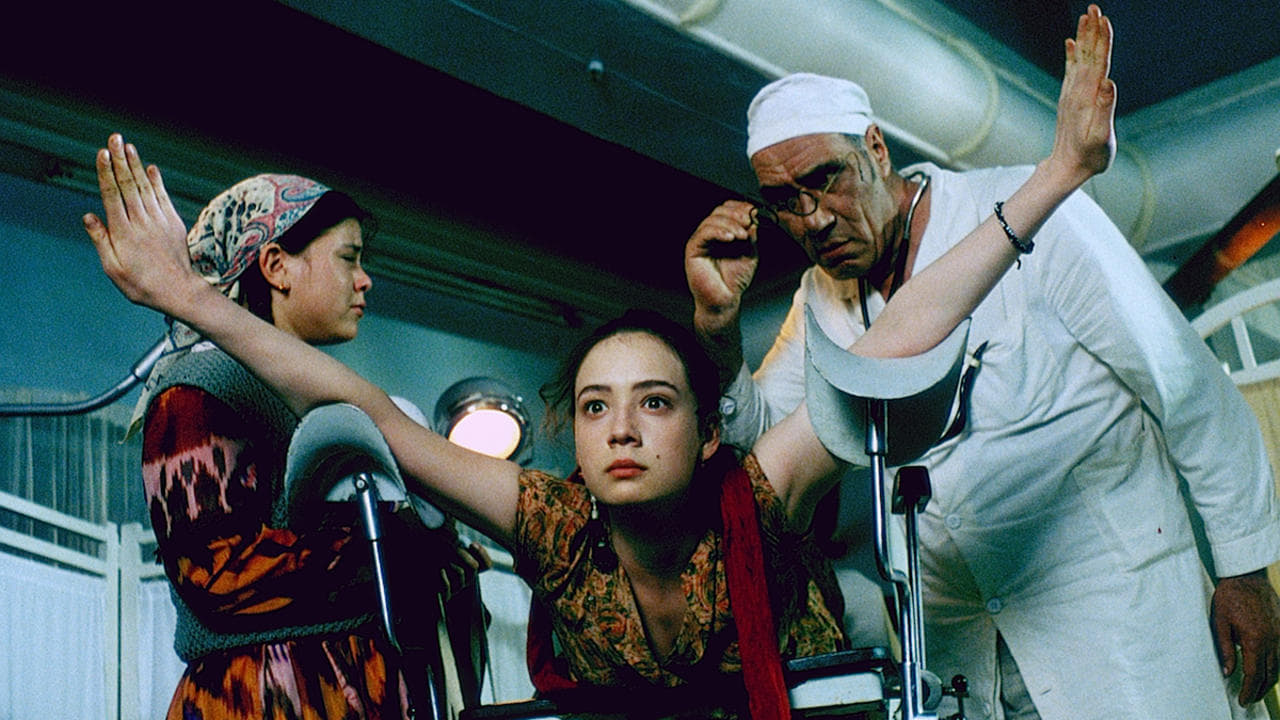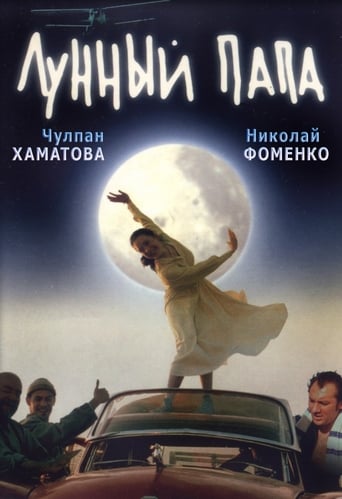



Each character in this movie — down to the smallest one — is an individual rather than a type, prone to spontaneous changes of mood and sometimes amusing outbursts of pettiness or ill humor.
View MoreVery good movie overall, highly recommended. Most of the negative reviews don't have any merit and are all pollitically based. Give this movie a chance at least, and it might give you a different perspective.
View MoreThis movie feels like it was made purely to piss off people who want good shows
View MoreI didn’t really have many expectations going into the movie (good or bad), but I actually really enjoyed it. I really liked the characters and the banter between them.
View MoreSince I only understand a little Russian, I had to guess what was going on. This movie was set in Tazikistan. The terrain was semi-desert. There was grass mixed with desert and mountains. I wasn't sure whether it was in the 80s or the 90s in which the movie took place, because in one scene the heroine is dancing in a pumpkin outfit and an official is there with a red star. In addition, there were lots of troops around, especially tank drivers. That led me to believe it was set in the 80s, and the troops were Russian soldiers on the way to Afghanistan. It is also possible that this is set in 1999 and the soldiers are involved in inter factional post-Soviet fighting. In either case, it is a wild place, where life is very cheap. People are always shooting at each other, kidnapping people, and getting into petty disputes. It is obvious that this is a Muslim region. It is a very rough and wild place. This young women gets raped while walking in the woods near her village. The man is an actor who flies around with his troupe from village to village and seduces women along the way. The young woman gets pregnant. It is a horribly embarrassing and difficult situation for her proud and caring Father. He is mad at first. Her brother, though, is immediately supportive. He is demented, and the villagers seem to tolerate his eccentricity of running around the village with bottles attached to his neck, like he is an airplane, destroying property along the way. What villagers don't tolerate is a woman who has been raped. They believe that it is her fault and that she is a bad person. It is a big stigma. Her Father decides to find the culprit. He goes from village to village looking for him. Since his daughter revealed that it was an actor, the Father goes to local theater productions and accosts any male in the cast. In the meantime, his Daughter falls in love with a doctor who rides along on an ambulance. The doctor pretends to be his lover, and they are to be married. However, a cow falls from the sky and kills both her Father and her lover during the wedding. I guess the filmmaker is mixing reality with surreality to empathize the craziness of living in Central Asia. The movie was pretty good. I spent a bit of the time trying to figure where it was set. The village was on a rather large lake or a small sea. It appeared to be salinated water. That's why I thought it was the Aral Sea. However, during the credits I saw that it was filmed in Tadzikistan. The only sizable lake is near Tashkent, and only that area is not completely mountainous. The area in the film was somewhat mountainous, but more steppeland and desert.
View MoreI'm not sure I liked the ending, which was a bit on the surrealistic side even for this movie, but otherwise I was engaged by the humour of this movie. There aren't too many movies that surprise me repeatedly. I was afraid to leave my seat, as I figured the movie could go in any direction.This isn't Hollywood. Instead, this was movie with peculiar, amusing and imaginative twists and turns, not to mention the odd sight gag.I saw "A time for drunken horses" about a week before this. "Horses" was about Kurds and set in Iran on the border with Iraq, while "Luna" was set in breakaway republics of the old Soviet Union. There are lots of similarities between the movies: deep poverty, dealing with ignorant, unkind small town people, running a gauntlet of soldiers to do commerce, and so on, yet "Luna" is a great comedy and "Horses" very much a bleak drama. What you take away from both movies is that life is still very difficult and provincial in some parts of the world. Geographically, too, the films are set in locations that are not very far apart (at least from the perspective of a North American!). Woman are treated in a crappy "old world" way in both places, too.Moritz Bleibtreau as Nesreddin, the brother, is brilliant. Perhaps he is the reincarnation of Harpo Marx.If you're sick of Hollywood formula films and you want to have a good time, I'd recommend this one.
View MoreFor those used to an anglo-saxon, Hollywood tradition of narrative movie-making, Luna Papa is a refreshing eyeopener. Imagine Ionesco on the big screen. It's a road movie of sorts, where armoured personnel carriers and crazed cattle-rustling pilots harrass our motley group of heroes as they drive their fabulous Volga across the lakes and landscapes of Tadzhikistan. For lovers of cinematography, the pure unadulterated sunshine and vibrant colours of the region suffuses the film with an uplifting warmth. Match this with some of the quirkiest bizarreries you're likely to have encountered: the heroine dances in a troupe of cabaret vegetables, her suitor electrocutes himself when proposing marriage, her father and brother will stop at nothing in hunting down her suspected inseminators. All in all, a thoroughly entertaining film. I won't tell you about the scene with the bull, but it's one of those cinematic moments that will stay in your head forever.
View More"Luna Papa" is a nice and also funny film but some scenes seem quite strange. Sometimes, me and my friends just looked at each other, a big "?" in the face. Some scenes are comparable to what the French call "absurd theater" but the end (about from the moment when the cow fell down) is not "absurd" but stupid.
View More